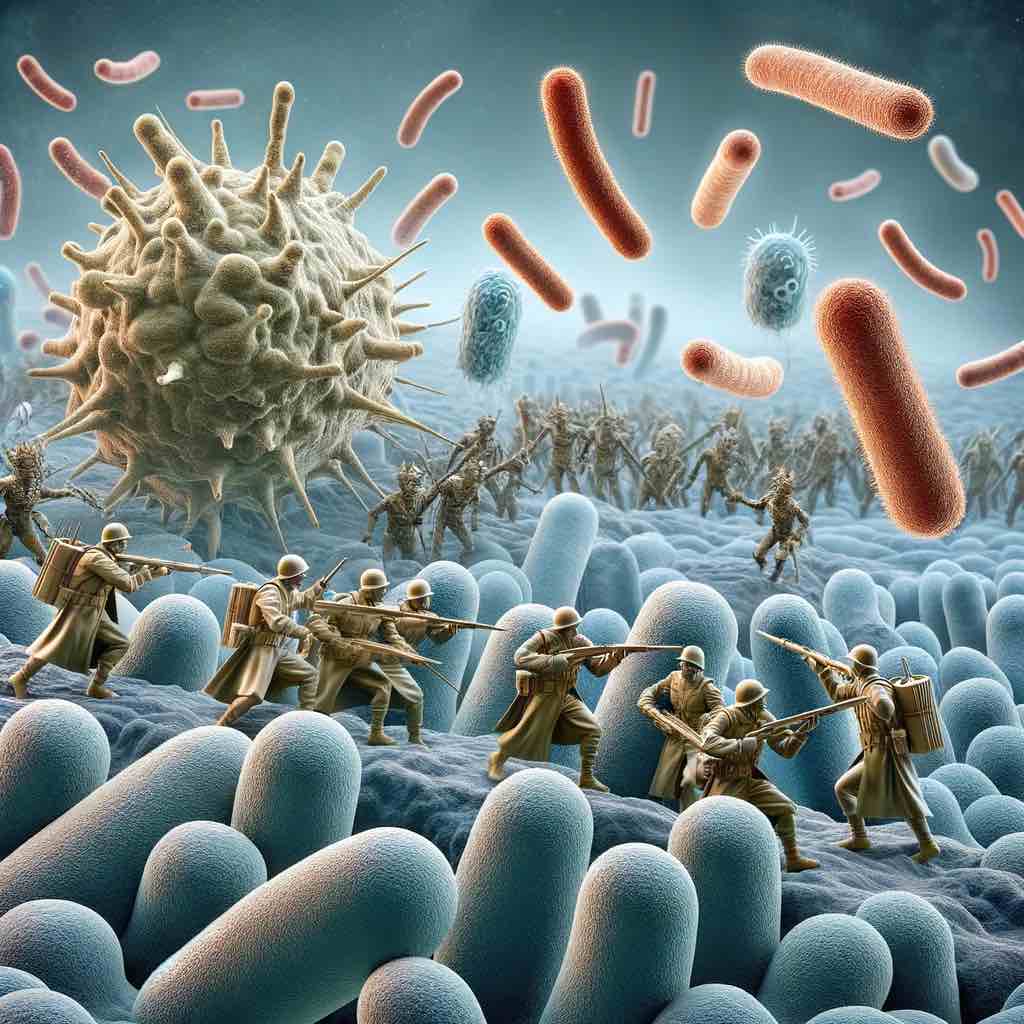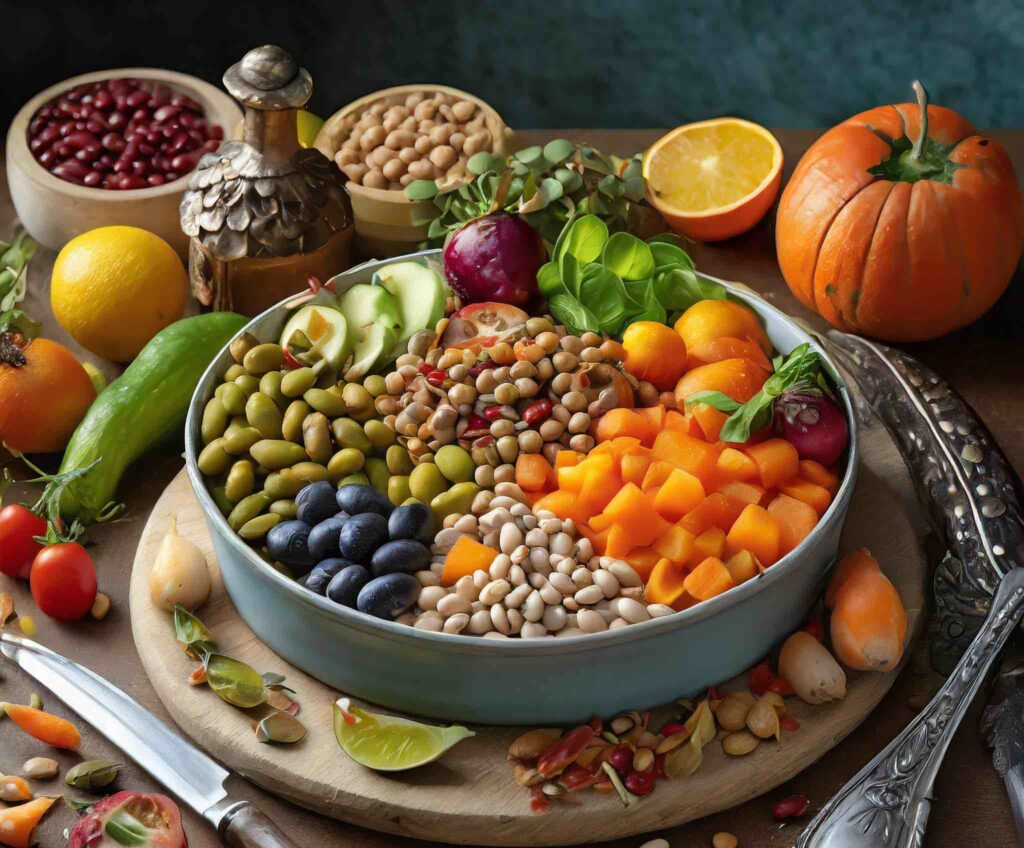How does making a simple choice in what you eat end up being a powerful step towards a healthier you?
Vegetarianism has moved beyond being a mere trend to become a science-backed lifestyle option. Studies show that this diet has a wide range of health advantages, such as a lower risk of heart disease, hypertension, weight loss, longevity, boosting immunity, type 2 diabetes, and certain cancers.
The focus of this post is the comprehensive benefits of a plant-based diet, common myths, and the downsides related to this eating style.
Today’s Focus of Attention is reader-supported. We sometimes include products we think are useful for our readers. If you buy through links on this page, we may earn a small commission.
What is a Plant-Based Diet?

In essence, a plant-based diet comprises foods coming from plants. We are talking about fruits and vegetables, as well as nuts, seeds, oils, whole grains, legumes, and beans.
However, it doesn’t mean that you’re vegan and never eat meat or dairy; rather, you choose more rations from plant sources to land in your meals.
Types of Plant-Based Diets
Choosing the right plant-based diet depends on your ethical concerns about animal welfare, environmental reasons such as reducing carbon footprint and conserving water, or just health reasons. These are the most common ‘green diets’ people follow.
Vegan
This is the strictest form. Those who call themselves ‘vegans’ do not consume any animal product or derivative. No beef, dairy, eggs, or honey are present in their diet. Instead, they focus on vegetables, grains, nuts, seeds, legumes, and fruits.
Lacto-Vegetarian
Those in this category include lactose-containing products, but avoid eggs, meat, poultry, and seafood.
Ovo-Vegetarian
They do not eat dairy but consume eggs along with plant-based foods.
Lacto-Ovo-Vegetarian
As the most common type of vegetarian diet, it allows both dairy and eggs.
Pescatarian
Pescatarians enjoy seafood and fish but exclude beef and domestic fowl. They may have dairy and eggs from time to time.
Flexitarian or Semi-Vegetarian
This diet is green, but once in a while it includes meat, dairy products, eggs, poultry, and fish.

Foods Included in a Plant-Based Diet
These are the staples found in a clean eating programme; however, you can add others to further increase the variety.
- Fruits and vegetables, both fresh and frozen.
- Legumes, including beans, lentils, and peas.
- Nuts and seeds such as nut butters, flaxseeds, chia, and hemp.
- Quinoa, brown rice, oats, barley, and whole-grain bread and pasta.
- Proteins such as tofu, tempeh, and seitan.
- Dairy alternatives: almond, soy, and coconut milk, as well as milk-free yoghurts and cheeses.
- Healthy fats including avocados, olives, and coconut oil.
Boost Your Immune System
By shifting to a plant-based diet, you are fortifying your body’s defences and helping them fight off infections. This is due to the diet’s high content of essential nutrients, antioxidants, and fibres, plus its anti-inflammatory properties.
Strengthening the Immune System
1- Plant-based diets are rich in vitamins A, C, and E, along with minerals such as zinc and selenium, crucial for your internal security force to perform at its peak. Get them from:
- Citrus fruits
- Berries
- Nuts
- Seeds
2- Fruits and vegetables are loaded with antioxidants that reduce oxidative stress in the body, the main cause of an inadequate immune response.
3- A diet high in fibre supports a healthy gut microbiota. This is key, since a significant part of the protective network is in the digestive system. Find them in:
- Whole grains
- Legumes
- Vegetables
4- Plant-based diets are valued for their anti-inflammatory properties. Be aware that chronic inflammation suppresses the immune system.
Regular consumption of leafy greens, tomatoes, and olive oil helps keep swelling down and restore your defence system’s response.

Fighting Infections
1- A well-functioning body’s army is more efficient at identifying and eliminating pathogens. The nutrients and antioxidants in plant-based diets offer the weapons to battle and destroy those intruders.
2- When fighting an infection, your body needs to replace damaged cells affected by combat. With a green eating style, your microscopic warriors can be fixed and regenerated with the speed of light, since your internal hospital is well-equipped.
3- Sometimes the immune system may overreact to particular circumstances, causing autoimmune diseases. But when it’s underactive, the body is more susceptible to infections.
A plant-based diet helps regulate the biological shield, preventing it from being overly active or too inactive.
“If slaughterhouses had glass walls, everyone would be vegetarian.”
Paul McCartney
The Anti-Inflammatory Power of Plants
The synergistic action of antioxidants, omega-3 fatty acids, polyphenols, fibre, vitamins, and minerals works to manage oxidative stress, modulate the immune system, and promote a healthy gut, all of which are key factors in managing inflammation.
Here’s an overview of how these nutrients work:
1- Antioxidants, including vitamins C and E, flavonoids, and carotenoids, neutralise free radicals, unstable molecules that cause swelling and cancer. Find them in:
- Berries
- Oranges
- Grapes
- Spinach
- Kale
2- Plants contain a good deal of omega-3 fatty acids (often associated with fish) and alpha-linolenic acid (ALA). Omega-3 controls molecules and substances linked to inflammation, such as eicosanoids and cytokines. Get them from:
- Flaxseeds
- Chia
- Walnuts
3- Polyphenols are a category of compounds that naturally decrease the production of pro-inflammatory cytokines. Foods rich in this compound include:
- Green tea
- Dark chocolate
- Fruits
- Vegetables
4- Inflammatory markers, such as C-reactive protein, pass from sight with a high-fibre diet, found in:
- Whole grains
- Legumes
- Vegetables
5- Powerful minerals such as magnesium and selenium are present in nuts, seeds, and whole grains. They help in various biochemical processes that modulate the body’s inflammatory response.
Maintain a Healthy Weight
Would you like to be in good shape and reduce the risk of cancer? Go for a leafy regime. Let’s explore how.
1- Plant-based foods have more nutrients per bite compared with their animal-based counterparts. Meaning that you eat a larger volume of food for the same number of calories, helping you satiate your hunger without overeating.
2- Fibre helps you feel full for a longer duration, which reduces overall caloric intake and assists in weight management.
3- Plant-based diets are poor in saturated fats and higher in healthy fats. Nuts, seeds, and avocados contain fats that are beneficial for the heart and keep overweight at bay.
4- A study published in JAMA Internal Medicine found that a plant-based diet led to a significant loss in body mass due to increased after-meal calorie burn.
“Nothing will benefit human health and increase chances for survival of life on Earth as much as the evolution to a vegetarian diet.”
Albert Einstein
Reduce the Chance of Cancer
Through various mechanisms, such as lower calorie density, high fibre content, and the presence of antioxidants and phytochemicals, a plant-based diet supports cancer risk reduction. Of course, you’ve got to include regular workouts, avoid tobacco, and limit alcohol intake.
1- Antioxidants and phytochemicals protect cells from damage that might lead to cancer. These compounds scavenge free radicals, reducing oxidative stress.
2- A diet rich in fibre lowers the likelihood of colorectal cancers, not only aiding in digestion but also in the elimination of carcinogens from the gut.
3- Plant-based diets slash insulin-like growth factor-1 (IGF-1) levels, which, if they appear to be high, increase the possibility of getting prostate cancer.
4- Another circumstance that raises the likelihood of developing cancer is chronic inflammation. Green meals include anti-inflammatory qualities, which help to minimise the hazard of this condition.
5- Excessive consumption of animal products has been linked to hormonal imbalances that may increase cancer risk, in particular the hormone-sensitive ones.

The Role of Fibre

Apart from the aforementioned benefits, a plant-powered dietary programme is vital for bringing down cholesterol and stabilising blood sugar.
Lowering Cholesterol
Soluble fibre, found in oats, beans, lentils, and certain fruits, lowers LDL by binding their particles in the digestive system and moving them out of the body before they’re absorbed. Also, bile acids, to which cholesterol is attached, are expelled, thereby reducing lipid numbers.
Stabilising Blood Sugar
Fibre slows down the absorption of glucose into the bloodstream. This is beneficial for preventing and managing type 2 diabetes. It also improves insulin sensitivity, helping your body manage glycemic levels more effectively.
Sources of Fibre in a Plant-Based Diet
- Nuts and seeds such as almonds, flaxseeds, and chia.
- Fruits such as apples, berries, and pears.
- Vegetables, including broccoli, carrots, and Brussels sprouts.
- Legumes like beans, lentils, and chickpeas.
- Oats, quinoa, and barley.
Improve Your Circulatory System and Live a Longer Life
Coronary Heart Disease
Because plant-based diets are low in saturated fat and lipids, you reduce the intake of LDL (bad) cholesterol, a key risk factor for myocardial infarction.
Also, the potassium content in fruits and vegetables counteracts the negative effects of sodium, a determinant of hypertension.
Moreover, the antioxidants in plants prevent the oxidation of cholesterol, which contributes to plaque buildup in the arteries.
High Blood Pressure
Leafy green vegetables, low in sodium and packed with nitrates, boost the production of nitric oxide in your body, helping to expand blood vessels, improving flow, and controlling the raging river through your veins.
Increased Longevity
By mitigating potential dangers for coronary heart disease, hypertension, and diabetes, a plant-based diet contributes to a lower chance of premature death from these conditions.
At the same time, with anti-inflammatory foods, antioxidants, and a healthy gut microbiome, you protect your cells from age-related disorders, avoiding chronic diseases while living a longer and healthier life.

“I can’t think of anything better in the world to be but a vegan.”
Alicia Silverstone
Environmental Impacts of a Plant-Based Diet
Although a plant-based diet is a better choice, we cannot deny that not everything is green here. A symphony of vegetables has obvious advantages, but its potential drawbacks are related to agricultural practices, food processing, and transport.
Avocados, for example, are an excellent source of healthy fatty acids, but they are not produced everywhere. So, if an entire nation wants avocados, they must import them, resulting in increased greenhouse gas emissions and overuse of land in the country of origin, not to mention larger water consumption.
Monoculture Farming
This is when a single crop is grown extensively, leading to soil depletion and reduced biodiversity.
Industrial Processes
It involves intensive energy demand and tonnes of package waste.
Increased Pesticide Use
A shift to plant-based diets could have a negative impact on the environment by causing the indiscriminate application of chemicals and poisoning the land due to agricultural practices.
Transport and Carbon Footprint
If food travels over long distances or needs extensive refrigeration, it increases its gas emissions, ruining any potential environmental benefits it may bring.
Myths and Misconceptions about Plant-Based Diets
Myth 1. Nutritionally Incomplete
A well-planned programme provides every essential nutrient your body demands, including protein, iron, calcium, zinc, and vitamins. Plenty of plants offer those nutrients, such as beans, lentils, nuts, seeds, tofu, tempeh, cereals, and fortified plant milks.
Myth 2. Restrictive and Boring
You can enjoy a diverse set of cuisines, flavours, and dishes, from burgers and pizzas to curries and stir-fries. At the same time, you could adapt your favourite recipes to make them plant-based or try new ones from vegetarian cookbooks.
Myth 3. Expensive
Buying in bulk, cooking from scratch, and using left-overs saves lots of money. Not to mention that many plant foods are cheaper than animal products. Find the ingredients in your local supermarket or farmers’ market.
Myth 4. It’s not Healthy
Numerous studies have shown that these eating styles lower the risk of chronic diseases, such as heart disease, diabetes, obesity, and some cancers. Bear in mind that a plant-based diet is not a magic bullet, and you still need to follow other good habits such as exercising, sleeping well, and avoiding smoking and alcohol.
Are you ready to get all the benefits of a plant-based diet? I understand it might be a cultural matter: barbecues at the weekends with family or buffalo wings and beer with friends after work.
Remember, change doesn’t have to be overwhelming. Start with manageable adjustments by adding more fruits and vegetables to your meals. The thing is, you must look after yourself. Test it for a couple of weeks or a month and see if there’s a difference in your mood and energy levels, and if possible, have some blood tests. How does it sound?
Please share your comments. We’d like to know how it’s going.


